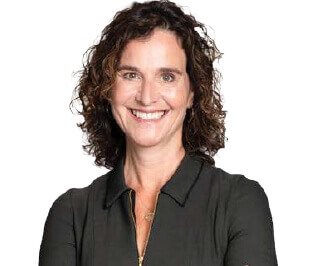Marketing’s transformative question
As marketers, we get to grapple with a lot of questions that start with ‘how?’:
How do we improve our brand NPS?
How can we drill down for deeper consumer insights?
How can we reactivate our lapsed DTC customers?
How do we ensure we maintain our price premium?
How do we motivate the agency to greater heights?
How do we increase our customer loyalty?
How could this brand use our R&D team’s latest innovation?
How could we leapfrog the market number two?
These ‘how’ questions are a feature at all levels of the marketing hierarchy, from the CMO (‘How do we achieve double-digit portfolio growth?’) to the newest graduate trainee (‘How do I hike up these sad Instagram likes?’)
They are practical questions, they matter, and when tackled with due diligence can bring great things out in us, because they cannot be answered without a sweeping grasp of the fundamentals and all the relevant data on our market, our brand and our consumers.
But ‘how’ is also a limiting construction. It implies that the higher order decisions have already been taken with judgement and vision. It starts from the acceptance that this way is the right way to go and that what matters from here on in is surmounting all the obstacles that might stop us from getting there. ‘How’ is a pragmatic question, not a transformative one. It takes you down into the detail, not up into the stratosphere.
So now and then it is good come up for air. The simplest way for marketers to raise their sights, and play their part in achieving transformative change for the brand and the organisation behind it, is to turn ‘how’ questions into questions that start with ‘why?’. And from there, to head to those crazy, open-ended, big-sky questions that start ‘what if…?’.
Simple. But not comfortable. Because what you’re doing here is questioning premises that, frequently, seem so self-evident as to be not remotely open to challenge.

For example, take the perfectly sensible ‘how’ question at the top of the list above – the one about improving NPS. Turn it into a ‘why’ question and you get the faintly absurd ‘Why should we improve our brand NPS?’
But is it so absurd? Look where it could take you. NPS is a ubiquitous metric. Everyone uses it. Why do we feel we will gain advantage probing the same parameters as our competitors? And NPS focuses only on current customers, whereas growth might come from bringing in new customers, from perhaps completely different channels. What if we broadened out, to seek better ways to get input from non-customers too? Could we devise our own super-metric, instead of following the crowd, that results in a richer set of data from a broader consumer base?
Or look at some of the other questions on that list above. The one about motivating the agency, for example. Why are we still with an agency that needs motivating? Why are we with an agency at all? What if we explored the amazing freelance talent out there? Why not create an in-house agency and get things done faster, more accurately and at lower cost? (Of course, you could deliberately leak these internal deliberations to the current agency and achieve your answer to the ‘how’ question right then and there.)
And so it goes on. Latest R&D team innovation: Why do we react to what they devise instead of feeding tomorrow’s consumer needs into them? Insights: Why do we rely on them so much? What if we explored all-round quality improvement to break through? Leapfrogging the category number two: Why aren’t we aiming to overtake the number one? What if we put a case to the board to acquire the number two to achieve it? Customer loyalty: Why not prioritise reach? What if Byron Sharp was right all along?
There’s a caveat here: a little goes a long way. It could get a bit much if you’re the one questioning premises every 10 minutes. If it’s all ‘why’ and no ‘how’, nothing will ever get done. So, it’s about choosing your timing and making sure you have something to offer beyond playing a tiresome ‘devil’s advocate’ role.
But better to do it sometimes than never. And, given that it’s the start of a year, I can see no reason not to turn the technique inwardly, to the personal level, too. Instead of asking ‘How can I go further in my marketing career?’, ask, ‘Why do I want to go further in marketing? Why do I choose this career?’
If the answers are vague and circumstantial – it seemed a good idea at the time – then maybe it’s the moment for a rethink. On the other hand, if your answer rounds on the power of marketers to improve people’s lives, drive prosperity, imagine futures that consumers themselves can’t even imagine, and bring colour, decency and heart to what otherwise would be cold commercial interactions, then you have something to build on, something you can seek to implement and make real every working day.
That brings us right back to ‘how’ of course. But it’s a question that you can now tackle with passion. Because you’ll know that that the higher-order decisions behind it have indeed been made with judgement and vision. Better still, they have been made by you.
